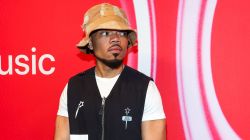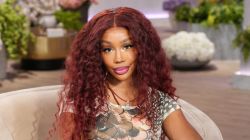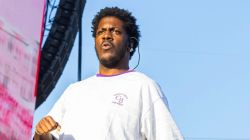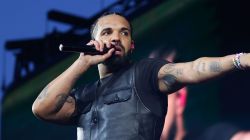Anyone can start a record label these days and quite a few do, but few earn the respect of artists and fans around the world like Mello Music Group. For Michael Tolle, a passion for music, beauty and truth spread virulently from mixtapes to reaching out to some of his heroes in order to curate Hip-Hop that will stand up to the test of time, not only for himself, but for the thousands of fans who support every release. While the roster at MMG may not be all over the radio (Michael almost prefers it that way since he’d rather have the music speak for itself), their catalog runs just as deep as any major label’s, if not at a higher level of quality.
That’s the secret of Tolle’s operation; it’s about building a label that actually cares about its artists. With “heart” as Open Mike Eagle recently told us in an interview. And with slew of solid projects and budding stars on the label, Tolle and Mello Music Group have proven that sometimes creativity and integrity actually does win out over big budgets and huge marketing teams.
The Genesis Of Mello Music Group
DX: I read that the start to MMG was this one Kev Brown beat that you considered buying for $1,000?
Michael Tolle: It was something like that. I used to make these Mello mixes, which were mixtapes of what I was listening to, locally. Made a little money trying to do that. I thought, what if I could put together some of this music? I know I’m not a musician but I could put this together. The question is always, what’s your budget? Nobody gives you a price. When you’re new, that’s always scary because you don’t want to insult your heroes. At the same time, you have no money. I remember asking my wife, should we offer him $1,000? We don’t know. I was listening to Oddisee, Kev Brown, Georgia (Anne Muldrow), Black Milk. Those are just the people I called. I had old favorites like Motion Man. It was a trip negotiating and thinking: I got a beat. What the hell do I do with that? Back then, anybody does this, you put out your first song and you’re shouting from the mountaintop that you got a song, overexposing yourself without being developed. But it’s fun. But that’s why it’s important to create what you really love so you don’t feel embarrassment later. Our first track was the Kev Brown beat with Kenn Starr on it. It had a local guy on it and Rob Swift doing cuts. The second song was Oddisee produced it, Black Milk rhyming, Oddisee rhyming, and Pooh rhyming, and Rome on the cuts. These were just experiments.
DX: I can imagine after these two records that your mind was racing in a million directions after.
Michael Tolle: I imagined myself at the time like this (Mark) Kostabi. I don’t know if this is true, but he’s the guy who supposedly painted the Guns ‘N Roses Use Your Illusion paintings. Apparently there was this controversy about whether he’d actually painted any of them. He was the director of a team of 20 painters. They’re all calling him a phony, but I thought as someone who runs a label; I want to be someone more than just the spreadsheets. This is my art and I could put these people together. I had the luxury that an emcee or a DJ didn’t have that when you’re a shitty emcee starting out, you can’t hit up the best of the best and say, “I want to rhyme with you.” If you do, you’re gonna pay through the nose. From my level, there’s no reason I couldn’t hit up the people I thought were great because I’m not rhyming with them. I can suggest ideas if there’s paychecks there. Rather than make something crappy, stop, go work, get your money up, and pay for the people you truly believe deserve it. We weren’t trying to get what was hot. We were trying to reach out to people we genuinely admired and wanted to hear more music from. It was usually unaffordable but close enough to make it work somehow.
Pivotal Artists In MMG’s History
DX: Looking back, what were some moments that you’re glad you took advantage of or that you regret not using?
Michael Tolle: Some of those big moments I didn’t get, where I’d say, “Oh, Joey Bada$$ is 14. We should look into this guy.” And you see it come to fruition. Even though he wasn’t with you, it’s that validation. When you’re 4-5 years ahead of the curve, it’s exciting. I’ve been really blessed with mentors. Sometimes it’s friends, jobs, girlfriends that led me to the record label. That started with Oddisee seeing how fast I wanted to run and as long as I kept buying stuff from him or coming up with ideas, he was able to do it, too. He taught me a lot about putting a finished product together and putting it out independently. I brought the business side and management.
The second person was probably Dudley and Georgia. They were influential in seeing how things are done. I got my first distribution deal with Dudley because of Groove Attack and then a big turning point was when we met with The Orchard. They were called Iota back then. Orchard bought Iota. I got a rep there, Cory Sheridan, from the beginning when I started. He got what we were trying to do and supported it. For digital distribution, he helped us solve it. We left Fat Beats, who were amazing to us for many years and who we appreciate.
Meeting Apollo changed things, too. He’s a guy who won’t change. He came to me with The Left. Everyone was turning it down but he didn’t tell me that. I fell in love with it and we concocted a plan. I knew that we couldn’t just drop it. I wasn’t ready. He wasn’t ready. So we put together The Reset and Brown Study with Boog Brown. Then we finally release The Left. We didn’t sell that much the first year but we felt so good about it. We didn’t have many fans but they loved it. Then we did Cloud, Daily Bread, and Trophies. We knew that this is it.
More recently, L’Orange has been very influential with his style. He’s a workhorse producer. That’s what I find between Apollo, L’Orange, Oddisee. They’re very unique but each of them is DIY. Each of them pushes me. Each of them is a producer’s producer — they have that ability to go in a room with the best of the best and say we need to cut this or do it again. They can be an asshole because it doesn’t fit the vision of the record. They’re like a director. And they can validate it with good music.
DX: Speaking of producers, it seems like, more than any other label, that MMG is a huge supporter of producers. How is it that when I think of MMG, I almost think of producers first rather than emcees?
Michael Tolle: I’ve always thought of us as a producers’ label. I don’t know why but that’s what I hear first. I hear the music first and then you realize the rhymes later. I digest lyrics secondary or third not because they’re less important but that’s just the second layer. The emcee is riding on top of a beat. He’s doing the same thing that you’re doing as a listener. He starts off listening to it and then formulates his thoughts. As a listener, I try to digest the music first. If you take the emcee away, I’m completely happy. That’s just me. I’ve done a lot of instrumental projects. Whether it’s Open Mike Eagle, yU, or Red Pill, they can tell a story with the beats so perfectly that that’s when I get involved with the age of the emcee.
Creating His Own Standards
DX: I almost know the answer to this but I’m gonna ask anyway…
Michael Tolle: Asian girls… (Laughs) My wife’s Korean. She’d kill me.
DX: (Laughs)That’s a good one. Anyway, even though you do run this label, it seems like you live in your own bubble. You care more about the music and creating it more than what other people are going to think of it and the sales.
Michael Tolle: This is just what I’m doing. I was teaching English to Korean kids for a while and I’d tell them, “No, you’re thinking about your career all wrong. The commercial world, if it’s there, that’s great. If the world becomes militarized, you’ll learn fighting. But you have to ask yourself, ‘What do you want to do 10 hours a day?’ And if that’s pick your nose, smoke weed, and play video games, you better figure that shit out and someone will monetize it.” For me it was reading books, going to galleries, and listening to music. I had to figure that out. I’m also a really isolated person. I love the people I know but I like my alone time. It’s my bubble of music and thinking.
DX: So then what metrics do you have for success then for a project?
Michael Tolle: It’s intangible. The first thing is that feeling you get from a project. The second thing is how well you work it. The artist has to push himself craftwise and be cognizant of the audience and connect. It’s not a monologue but a conversation. Also, did we set out to do the things we set out to do? I don’t think it’s that complicated. You have to do it better each time. You’ll know. It’s like running. You can look at your watch but you’ll know if you had a good day running or not. Because it’s a business, you look at the watch. I get reports but we’re not praying on hype and media so we’re not surprised at what a record does. We’re trying to build fans and we kind of know who our fans are.
Growing Up In Columbus & Being Exposed To Hip-Hop
HipHopDX: So where were you born?
Michael Tolle: I was born in Pittsburgh and I grew up in Columbus. I was just talking to Blueprint the other day. I used to work at the mall that he would come into. We didn’t know each other back then. Then I moved to Arizona when I was 16/17. Been out here ever since.
DX: What did you grow up listening to?
Michael Tolle: I remember when I was really little, my sister, bless her heart, she got Ice-T’s Power tape. I looked at that cover and I was a little boy, and that girl’s ass. Oh my god. There were guns, crazy gold chains, Miami Vice. So I listen to it and you have “Girls Let’s Get Butt Naked And Fuck,” “High Rollers,” and I learned every lyric of that album. Then I went backwards and Rhyme Pays. Then I got into N.W.A.. The next phase was DJ Quik Rhythm-al-ism. I’d be listening to Quik and my friends would be on Wu-Tang. I was on a West Coast thing. Then, genres didn’t matter anymore and I was listening to stuff outside of Hip Hop like Prince Paul, Kool Keith, Dr. Octagon, Dan the Automator, DJ Shadow. When I lived in Phoenix, Z-Trip was a DJ in this group called Bomb Shelter DJs and they had a weekly night at the Green Room. I used to go to that. Those guys were great. That’s when I got more sophisticated where I listened enough to have an opinion. At the same time, people were pushing Master P on me and I still have a love for that.
On Persona And MMG’s Future
DX: As for this compilation tape, it’s a great collection of the individual voices you have on the label that come together nicely under one umbrella of MMG. Did you come up with the title?
Michael Tolle: I did. Every year, I think of the album as the identity of the label. It’s also my chance to do what I do. The idea of Persona is also like a mask. Identity is a mask in many ways. It’s the identity of each of us as an artist. As you see your artists, the lines get blurred when Oddisee becomes Amir Mohamad to some people. The name comes from a journal at the University of Arizona for literature called Persona. I always liked it. That’s what it was about this year — weaving all these people together. More than ever, we’re diverse. When you think of an Open Mike Eagle crowd vs. an Apollo crowd and somebody asks how you bridge a gap like that, I’ll say, “Quelle Chris.”
I was reading the bottom notes of Oddisee’s album and it said, “Produced, mixed, and arranged by Oddisee.” The word “arranged” always pops out to me. It means something different for what he does. It’s so important to me though. The arrangement of tracks, emcees, producers, how they’re gonna sound juxtaposed with each other. I have like 15 versions of Persona and every one of them plays differently when you hear it just because of the arrangement.
DX: Are you confident about next year’s as much as you are about this one?
Michael Tolle: I definitely need to get into the concept of the next one still. I do know that the hardest part of this one was saying no to certain songs. I personally loved it. Next year, I might even do 12 so it’s more powerful.
DX: Are you looking at new strategies or markets to get into now that weren’t available before?
Michael Tolle: There’s the artist side of it, which is the music. For a long time, I felt a pull to Electronic music in Hip-Hop. Hip-Hop reached a point where you had Flying Lotus and now it’s evolved. Open Mike Eagle is in that lane. I’m trying to explore the roots of the music. Marketing and distribution wise, the big thing for us is trying to keep the level of attention but expand globally. We have much more presence in France, Germany, and the UK, and Japan, and Australia. There’s fans there we haven’t connected with.
DX: Have you ever considered creating a Mello Music Group music festival?
Michael Tolle: That question is asked by every artist and friend I have, constantly. I think about it all the time. I have some old black books I used to draw in. I’ll pull them out and start mapping out the Mello Music Group Picnic. They get super developed and I can them. I try to remind myself that I’m not a booking agent. I’m not a promoter. What’s been more interesting to me recently is the idea of a retreat or an invite only thing, where I invite my favorite writers and videographers and artists and try to bring everybody together for a weekend with 100 or 200 of us. Formulate something from there. I could see that turning into a festival later.









Dope article DX…I like this
He needs to see if ex hall of Justus of Justus mc, L.e.g.a.c.y. would be interested in recording an album for MMG.
Best new label around in a long time. Only other label that can compete is Mass Appeal..
Salute!!
Great article. Always was curious to see and learn about the master conductor.
The Real MMG as I like to say is probably the most consistent Hip-Hop label in the more recent times….. Persona is a masterpiece!!
The Real MMG as I like to say is probably the most consistent Hip-Hop label of recent times… Persona was a masterpiece! it was great because it introduced me other artists on the label that I haven’t checked out yet!
My sentiments exactly. Dope label, well written article.